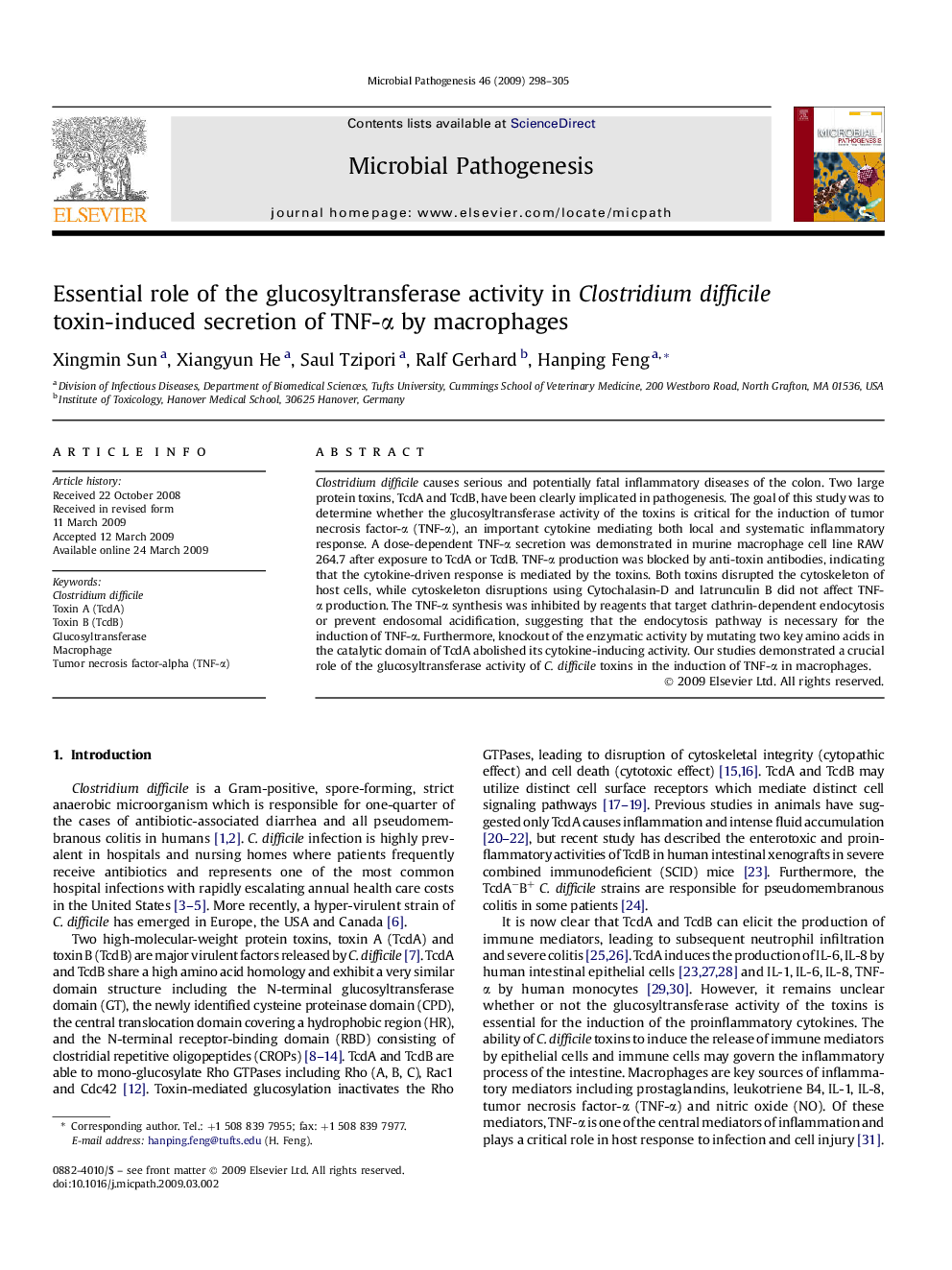| Article ID | Journal | Published Year | Pages | File Type |
|---|---|---|---|---|
| 3417027 | Microbial Pathogenesis | 2009 | 8 Pages |
Clostridium difficile causes serious and potentially fatal inflammatory diseases of the colon. Two large protein toxins, TcdA and TcdB, have been clearly implicated in pathogenesis. The goal of this study was to determine whether the glucosyltransferase activity of the toxins is critical for the induction of tumor necrosis factor-α (TNF-α), an important cytokine mediating both local and systematic inflammatory response. A dose-dependent TNF-α secretion was demonstrated in murine macrophage cell line RAW 264.7 after exposure to TcdA or TcdB. TNF-α production was blocked by anti-toxin antibodies, indicating that the cytokine-driven response is mediated by the toxins. Both toxins disrupted the cytoskeleton of host cells, while cytoskeleton disruptions using Cytochalasin-D and latrunculin B did not affect TNF-α production. The TNF-α synthesis was inhibited by reagents that target clathrin-dependent endocytosis or prevent endosomal acidification, suggesting that the endocytosis pathway is necessary for the induction of TNF-α. Furthermore, knockout of the enzymatic activity by mutating two key amino acids in the catalytic domain of TcdA abolished its cytokine-inducing activity. Our studies demonstrated a crucial role of the glucosyltransferase activity of C. difficile toxins in the induction of TNF-α in macrophages.
